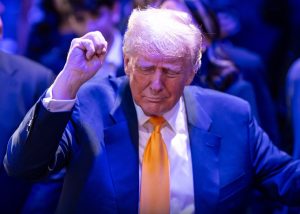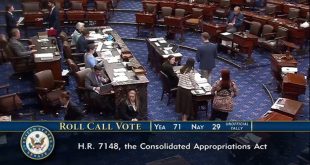 -Editorial
-Editorial
In a move that resolves months of uncertainty, former President Donald Trump signed an executive order establishing a framework for TikTok to continue operating in the United States, addressing long-standing national security concerns while safeguarding the platform’s economic footprint.
The order mandates a structural divestiture that places TikTok’s U.S. operations under a newly formed American-based joint venture. Administration officials say the arrangement ensures majority American ownership and control, while limiting the influence of ByteDance, the Beijing-based parent company. ByteDance will hold less than 20% of shares, may appoint a single board member, and is barred from participating in the company’s security committee.
Oracle, the California-based technology firm, will serve as TikTok’s security provider, managing the storage of U.S. user data in a domestic, purpose-built cloud environment. The firm will independently monitor operations to prevent foreign access. Additionally, U.S.-trained algorithmic models will be retrained and overseen by American security partners, aiming to mitigate potential manipulation of content and reduce the risk of influence campaigns.
The executive order pauses enforcement of the Protecting Americans from Foreign Adversary Controlled Applications Act for 120 days, giving TikTok the necessary window to complete the divestiture. The law, signed earlier this year, had threatened a U.S. ban if TikTok failed to restructure its operations by the set deadline.
TikTok has grown into one of the most influential social media platforms in the U.S., with approximately 170 million American users. Its appeal is especially strong among younger audiences, fueling an ecosystem of content creators, small businesses, and marketing campaigns that depend on the platform for income and visibility.
Administration officials highlighted the economic implications of preserving TikTok, projecting that the platform could generate $178 billion in U.S. economic activity over the next four years. Trump framed the decision as a strategic balance between security and economic interests, stating, “And if we can save it, I think that would be a very good thing. And I think it would be economically good for America.”
Critically, the order raises broader questions about the effectiveness of such corporate restructuring in addressing national security risks. While the divestiture reduces ByteDance’s influence, the underlying concerns about foreign-owned platforms accessing sensitive American data persist. Experts argue that without continuous oversight and transparency, regulatory gaps could allow data exposure or content manipulation to occur.
The measure also underscores the ongoing tension between U.S. policymakers and Chinese tech firms. TikTok’s trajectory mirrors previous controversies over Huawei, WeChat, and other Chinese apps, reflecting the increasing geopolitical complexity surrounding global digital platforms. Bipartisan scrutiny in Washington has intensified in recent years, and legislative proposals continue to target foreign-owned applications, emphasizing data privacy, national security, and content integrity.
TikTok’s status as a cultural and economic powerhouse adds a layer of complexity. The platform’s success has fueled a generation of digital creators who rely on it for revenue, branding, and audience engagement. Limiting its operations could have ripple effects across advertising markets and creative industries. Conversely, ensuring its operations in the U.S. through American oversight may provide a model for balancing security with innovation, though critics question whether the framework goes far enough.
The administration presents the deal as part of a broader policy agenda to protect U.S. interests in technology and trade, citing achievements like the U.S.-Mexico-Canada Agreement and trade deals with European and Asian partners. Yet, the sustainability of this agreement hinges on rigorous enforcement, clear reporting standards, and consistent regulatory oversight.
For now, American users and businesses can operate with clarity and confidence. However, the arrangement is a reminder that as social media platforms become increasingly integrated into daily life, questions about foreign influence, data security, and corporate accountability will remain at the forefront of public debate.
TikTok’s journey in the U.S. is far from over. While the immediate crisis appears averted, policymakers, regulators, and the public must continue scrutinizing the platform, ensuring that economic benefits do not come at the cost of national security. The Trump administration’s order may have provided a temporary resolution, but the long-term challenge will be maintaining a balance between innovation, commerce, and safeguarding American data and digital spaces.


